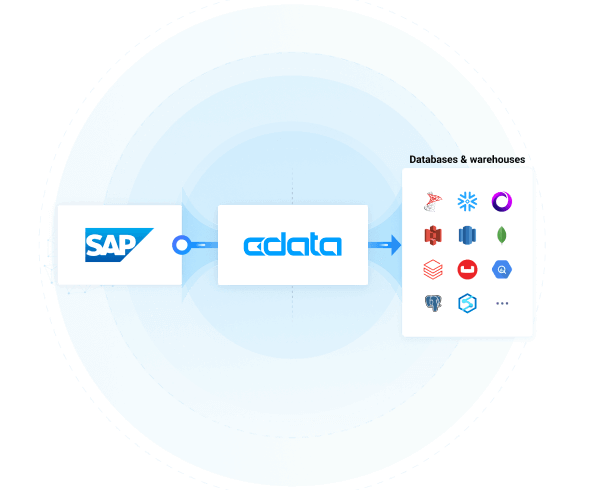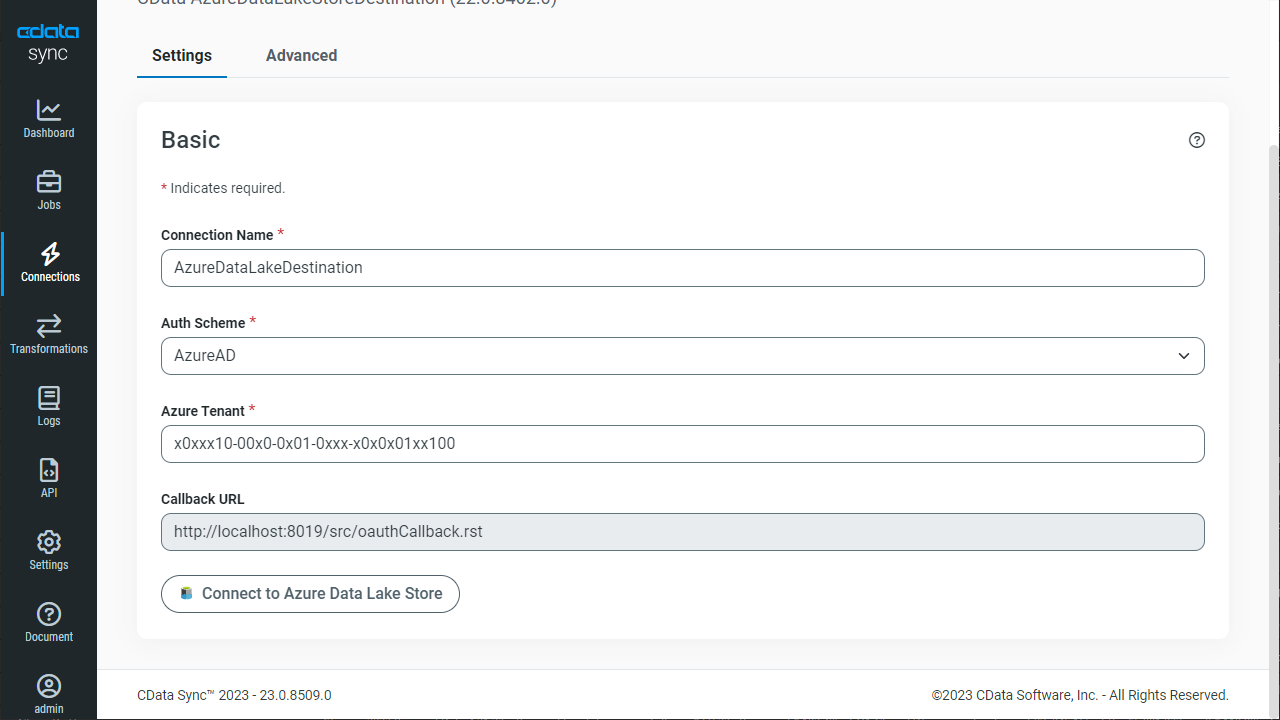Discover how a bimodal integration strategy can address the major data management challenges facing your organization today.
Get the Report →Automate Excel Online Data Replication to Azure Data Lake
Use CData Sync to customize and automate Excel Online data replication to Azure Data Lake.
Always-on applications rely on automatic failover capabilities and real-time data access. CData Sync integrates live Excel Online data into your Azure Data Lake instance, allowing you to consolidate all of your data into a single location for archiving, reporting, analytics, machine learning, artificial intelligence and more.
Configure Azure Data Lake as a Replication Destination
Using CData Sync, you can replicate Excel Online data to Azure Data Lake. To add a replication destination, navigate to the Connections tab.
- Click Add Connection.
- Select Azure Data Lake as a destination.
![Configure a Destination connection to Azure Data Lake.]()
Enter the necessary connection properties. To connect to Azure Data Lake, set the following properties, depending on your version of Azure Data Lake Storage:
Azure Data Lake Storage Gen1
- Generation: Must be set to 1.
- Account: The name of the Azure Data Lake Store account.
- Path: The path to store the replicated file (the root directory by default).
- TenantId: The tenant ID.
- OAuthClientId: The application ID for the Azure Directory web application (see the CData Sync Help for more information).
- OAuthClientSecret: The key generated for the Azure Directory web application (see the CData Sync Help for more information).
Azure Data Lake Storage Gen2
- Generation: Must be set to 2.
- Access Key: The access key used to authenticate (see the CData Sync Help for more information).
- Account: The name of the Azure Data Lake Store account.
- FileSystem: The file systems used for this account.
- Path: The path to store the replicated file (the root directory by default).
- Click Test Connection to ensure that the connection is configured properly.
![Configure a Destination connection (Generation 1 is shown).]()
- Click Save Changes.
Configure the Excel Online Connection
You can configure a connection to Excel Online from the Connections tab. To add a connection to your Excel Online account, navigate to the Connections tab.
- Click Add Connection.
- Select a source (Excel Online).
- Configure the connection properties.
You can connect to a workbook by providing authentication to Excel Online and then setting the following properties:
-
Workbook: Set this to the name or Id of the workbook.
If you want to view a list of information about the available workbooks, execute a query to the Workbooks view after you authenticate.
- UseSandbox: Set this to true if you are connecting to a workbook in a sandbox account. Otherwise, leave this blank to connect to a production account.
You use the OAuth authentication standard to authenticate to Excel Online. See the Getting Started section in the help documentation for a guide. Getting Started also guides you through executing SQL to worksheets and ranges.
![Configure a Source connection (Salesforce is shown).]()
-
- Click Connect to ensure that the connection is configured properly.
- Click Save Changes.
Configure Replication Queries
CData Sync enables you to control replication with a point-and-click interface and with SQL queries. For each replication you wish to configure, navigate to the Jobs tab and click Add Job. Select the Source and Destination for your replication.
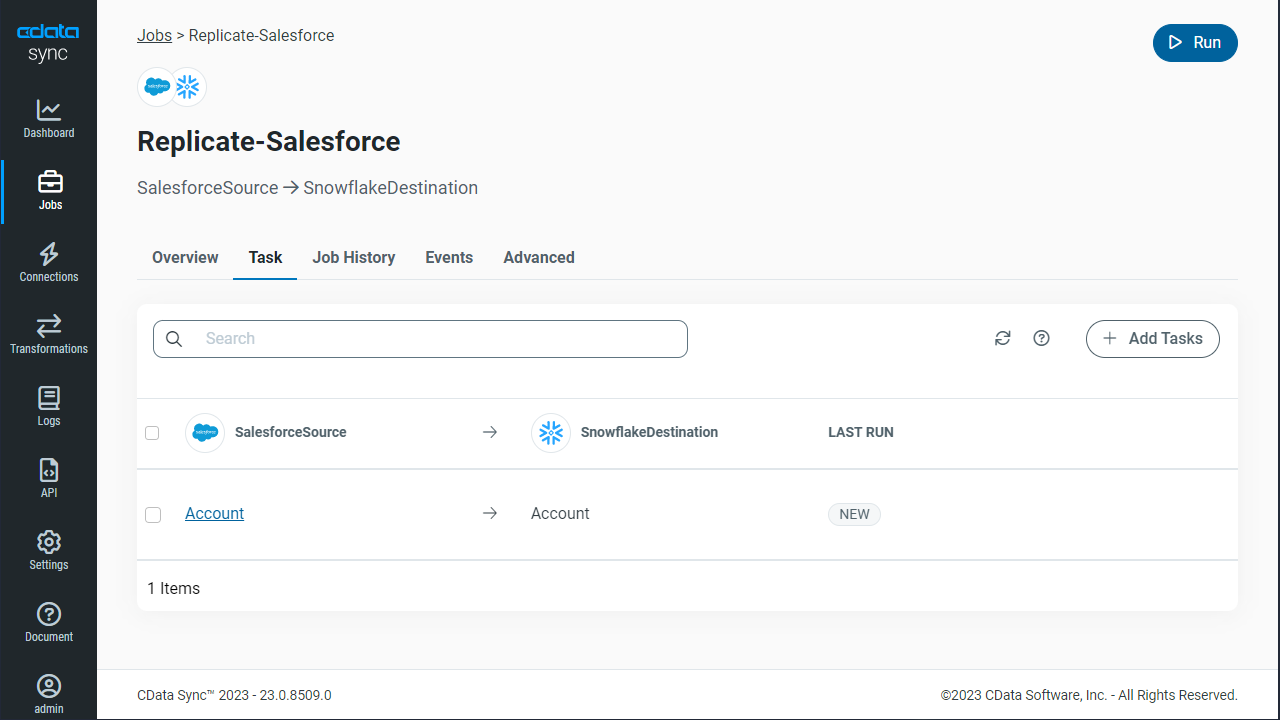
Replicate Entire Tables
To replicate an entire table, click Add Tables in the Tables section, choose the table(s) you wish to replicate, and click Add Selected Tables.
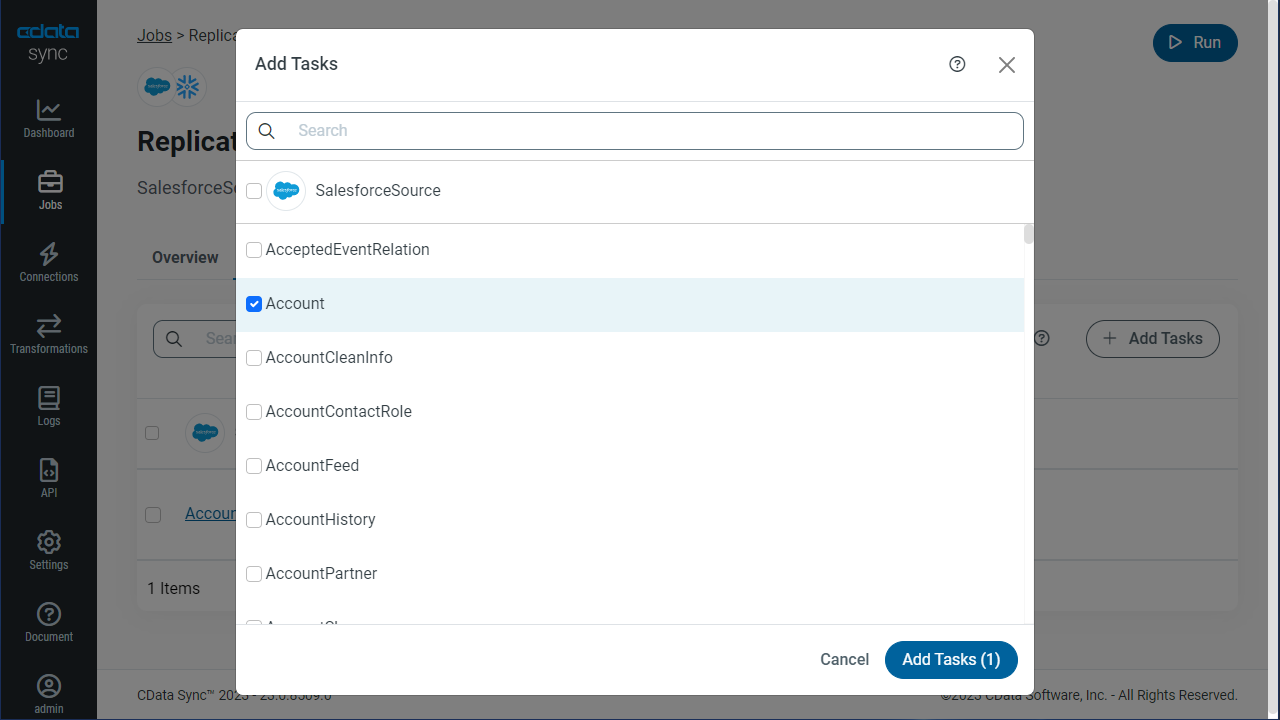
Customize Your Replication
You can use the Columns and Query tabs of a task to customize your replication. The Columns tab allows you to specify which columns to replicate, rename the columns at the destination, and even perform operations on the source data before replicating. The Query tab allows you to add filters, grouping, and sorting to the replication.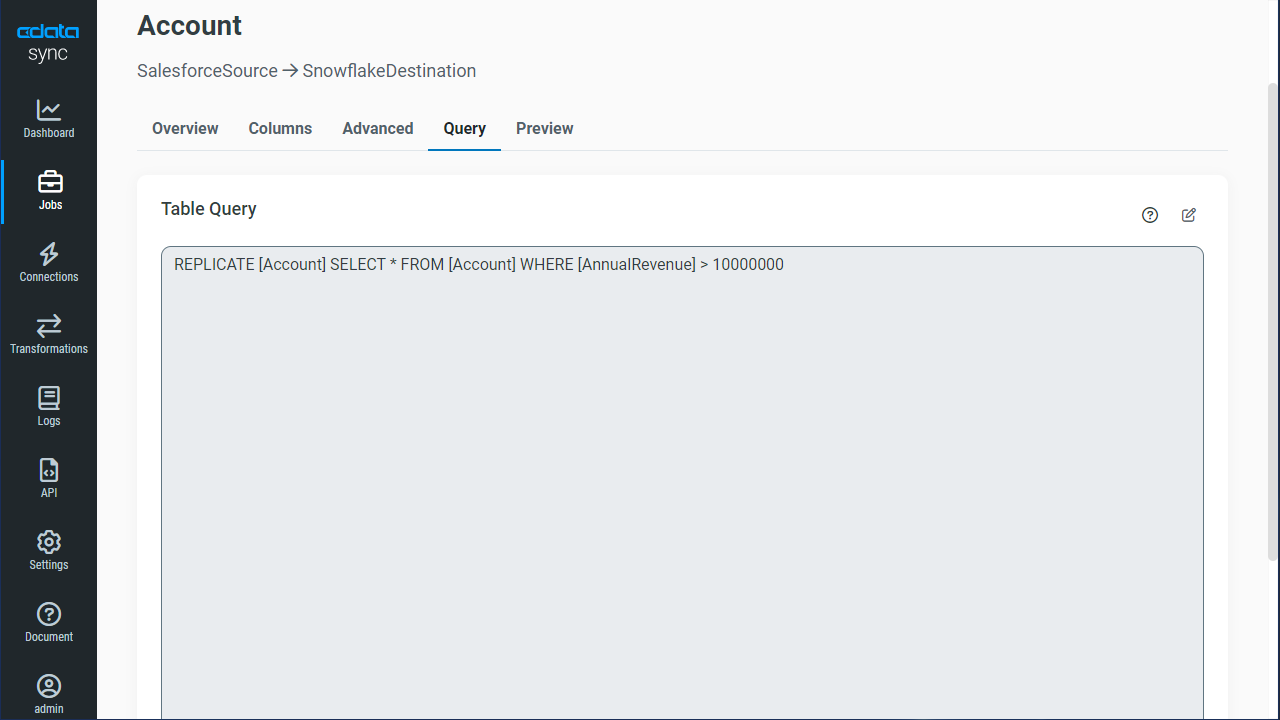
Schedule Your Replication
In the Schedule section, you can schedule a job to run automatically, configuring the job to run after specified intervals ranging from once every 10 minutes to once every month.
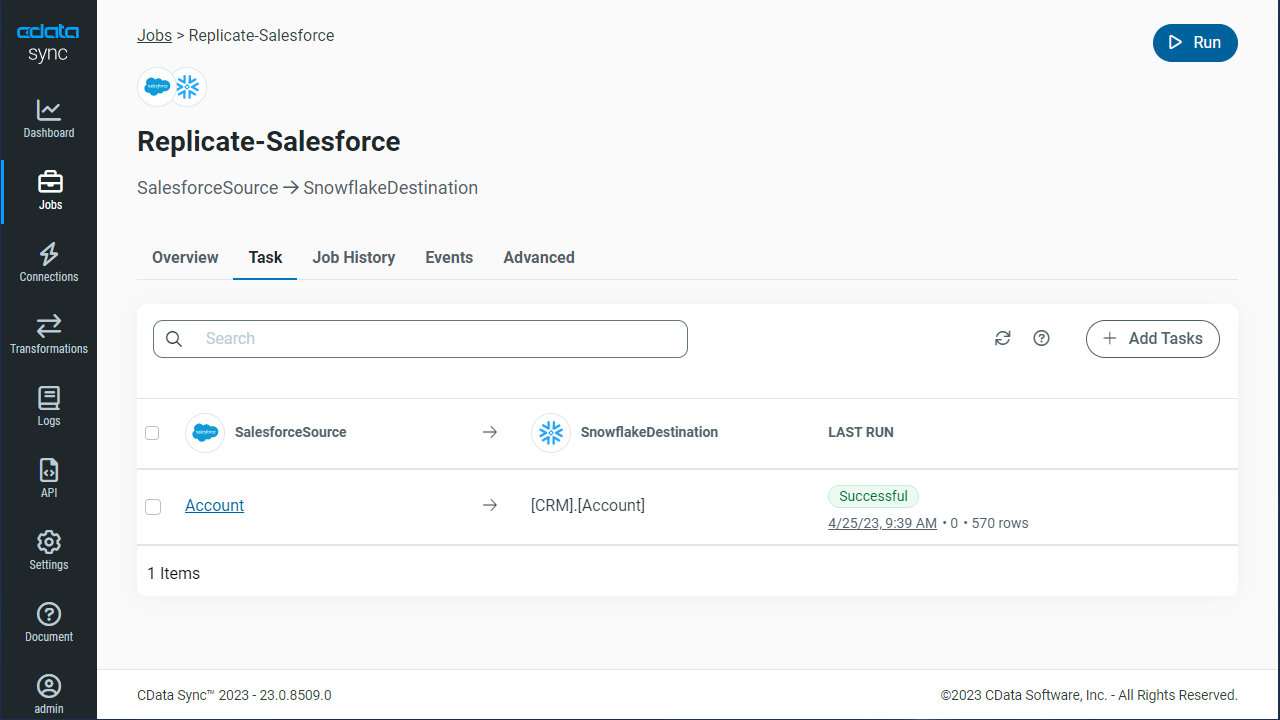
Once you have configured the replication job, click Save Changes. You can configure any number of jobs to manage the replication of your Excel Online data to PostgreSQL.


